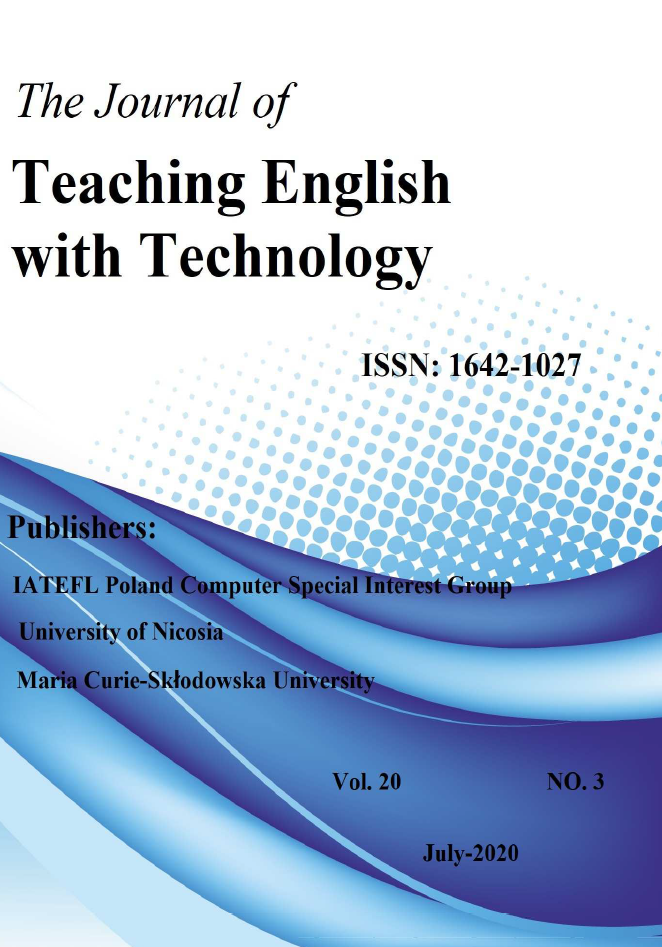DOES WEB 2.0-SUPPORTED PROJECT-BASED INSTRUCTION IMPROVE JORDANIAN EFL LEARNERS' SPEAKING PERFORMANCE?
DOES WEB 2.0-SUPPORTED PROJECT-BASED INSTRUCTION IMPROVE JORDANIAN EFL LEARNERS' SPEAKING PERFORMANCE?
Author(s): Ruba Fahmi Bataineh, Anwar Solaiman Migdadi, Muhammad Khalid Al-AlawnehSubject(s): Foreign languages learning
Published by: IATEFL Poland Computer Special Interest Group and The University of Nicosia
Keywords: accuracy; EFL; fluency; Jordan; project-based learning; speaking; Web 2.0
Summary/Abstract: This study examines the potential effectiveness of Web 2.0-supported project-based learning in Jordanian EFL eleventh-grade students’ speaking fluency and accuracy of grammar and vocabulary. The participants of the study were 43 female students who were purposefully selected from two schools at Al-Koura Directorate of Education (Jordan) in the first semester of the academic year 2018/2019. Using a quasi- experimental, pre-/post-test design, the participants were divided into the experimental group (n=21) who was instructed using computerized project-based instruction and the control group (n= 22) who was taught per the guidelines of the prescribed Teacher Book, Action Pack 11. Descriptive statistics and One-Way ANCOVA were used to analyze the students’ scores on the speaking pre-/post-tests. The results showed that the participants instructed through the computerized project-based treatment outperformed those who were conventionally instructed in both speaking fluency and accuracy of vocabulary and grammar. A number of pedagogical implications and recommendations are put forth.
Journal: Teaching English with Technology
- Issue Year: 20/2020
- Issue No: 3
- Page Range: 25-39
- Page Count: 15
- Language: English

